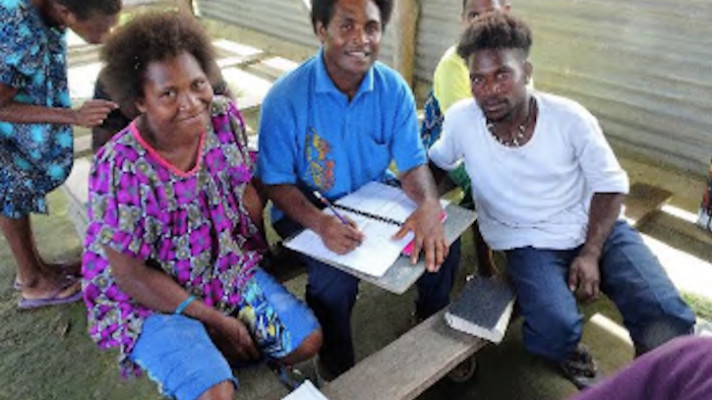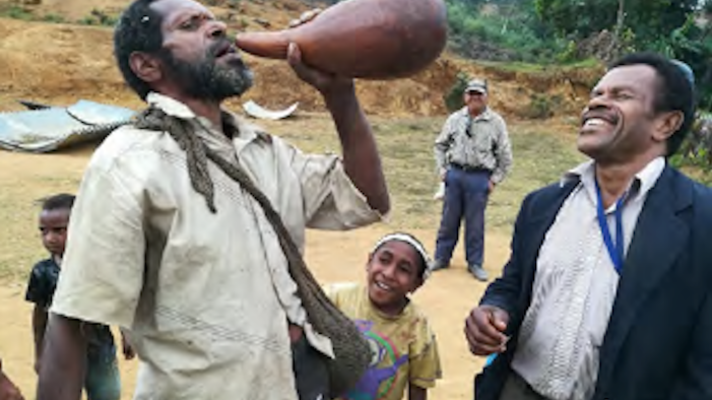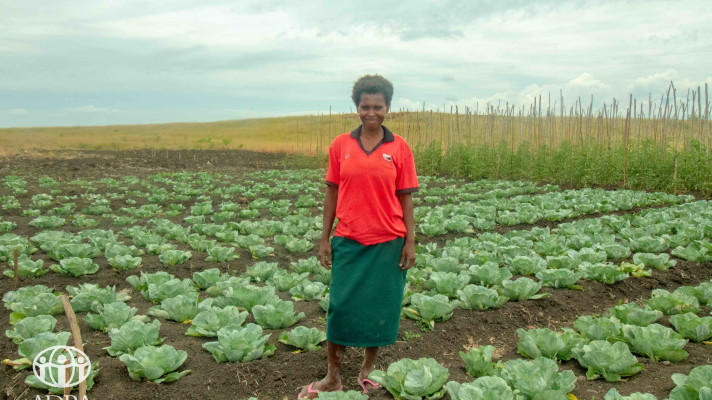(The class is comprised of a diverse group of people)

Adult literacy levels in Pap-ua New Guinea are the lowest among the Pacific Nations, and the prevalence of non-communicable diseases is on the rise due to rap-idly changing diets and lifestyles. Aware of all this, my visit to Tavoli Adult Literacy School in Gazelle District of the East New Britain Province was a wonderfully uplift-ing experience. ADRA PNG’s Kokopo team has written an adult literacy curric-ulum in English, which will be implemented in adult literacy schools in the Island Provinces. The curriculum provides lessons designed to improve reading, writing and numeracy skills, as well as lessons focussing on health, lifestyle, personal finances and environmental issues. I joined the ADRA PNG team as an education adviser funded by the Australian Government through the Australian Volunteers Program. The visiting team to Tav-oli Adult Literacy School consisted of Max Inia (Kokopo Project Manager), Misikaram Eliuda (Kavieng Project Manager), Linda Fran-cis-Bago (Project Administration Officer), Sue Spargo (private volunteer) and myself. As part of the pilot program the team visited Tony Pirit, a vol-unteer teacher in the community. Tony completed ADRA’s teacher training workshop at the end of 2018 and planned to start his school in February 2019. The visit was part of the pilot program to monitor, evaluate and learn as the curriculum was being delivered. The journey from Kokopo to Tavoli was completed with two PMVs trips. The first PMV took us from Kokopo to Kerevat, where the team was met by Tony, and a second PMV took us the final ‘two kilometres’ to Tavoli. The
‘two kilometres’ took about 40 minutes, and the team arrived at a beautiful school located in the Lamb Shelter adjacent to the Tav-oli Seventh Day Adventist church. Tony’s vibrant smile clearly demonstrated how proud he was of his achievements. Originally, Tony predicted that the school would enrol twelve learners in the three-month English literacy course. But by the time we ar-rived, enrolments had increased to twenty-two. On the day of our visit, every learner was in attendance, busily completing the learner’s work-books that we had written the previous year. The most extraordinary obser-vation was the composition of the learners. Most of the learners were women who had young children with them. Several young men who were early school leavers were also enjoying the challeng-es of the lessons. Both male and female senior citizens were rep-resented, and most heartening was the attendance of a young man with Down Syndrome and a man whose arm was amputated. To witness this cross section of the community working together was a truly heartening experience. It ticked all the boxes of a truly inclusive program. Our duties included observing the lessons, completing the school checklist and providing additional teaching resources as needed. The team also addressed the learners and board of management about the operation of the school. Sue also took the opportuni-ty during the visit to establish a simple library using books do-nated by Books 4 PNG Kids, an Australia-based non-for-profit organisation. She spoke about the importance of reading to children at home to improve their literacy. Included in the library is a copy of Stori Bilong Ples, an initiative in which teachers and learners write stories about their communities in English language. Sue works with the writers to co-edit the sto-ries, add photos and publish the final draft. Stori Bilong Ples is one strategy that is used to provide locally relevant English language text while overcoming the high cost of reading materials in PNG (see article on page 5: “Stori Bi-long Ples”). For those students who were having trouble with their vision, the team distributed reading glasses that were donated by Spec Savers Ballina and many individual Australians. Tony has the support of his community, especially his wife Ulamila, and is doing a truly great service to his local community.


